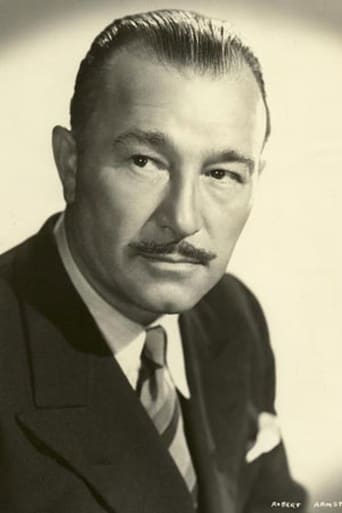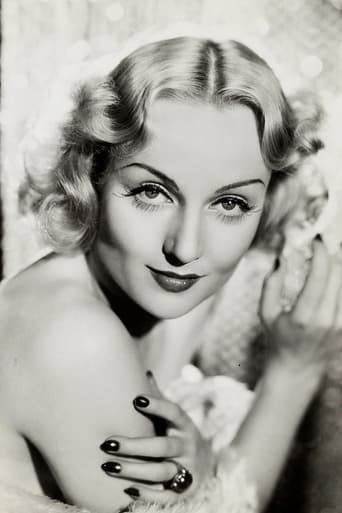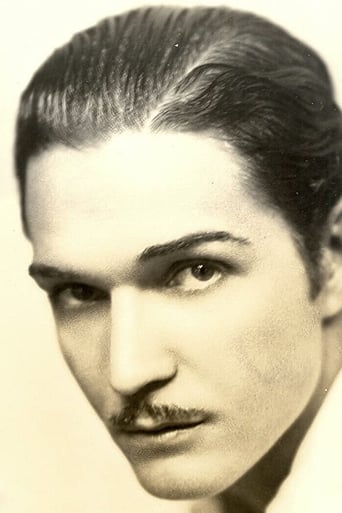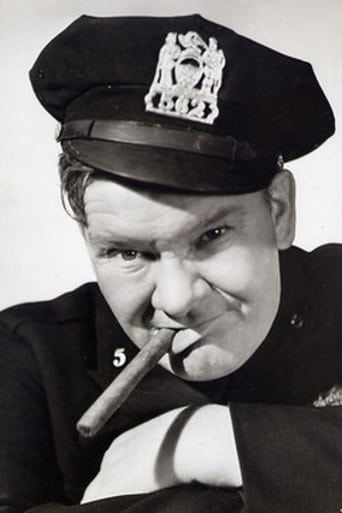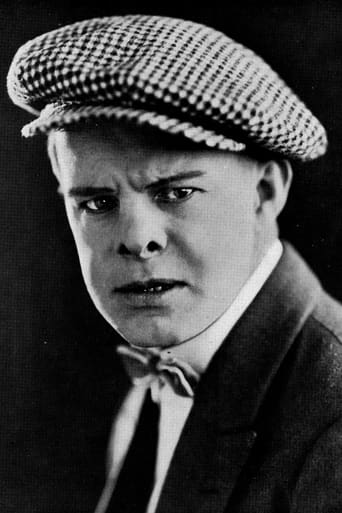UnowPriceless
hyped garbage
BelSports
This is a coming of age storyline that you've seen in one form or another for decades. It takes a truly unique voice to make yet another one worth watching.
Guillelmina
The film's masterful storytelling did its job. The message was clear. No need to overdo.
Cristi_Ciopron
Who could establish if Armstrong's Mahlon K. is a good role? The actor looks so much his role, and so well, it's puzzling. Dependable supporting cast: Kit Guard and Al Hill; as often with the Pre-Code movies, the script is fundamentally right, whether it's masterful and crafty, or not, but the main thrust exists, and the scenes are leisured, unhurried, as the nice one with Al Hill being menaced, threatened by Paul Hurst. Because the players are unaccustomed with the new asset (i.e., the sound), the movie gains an uncanny dignity; you can feel at once the inexperience and the eagerness. I enjoyed the scene with the orchid. The movie is about the gangsters and about the glamorous world, but more about the gangsters, and we come to know him better than his girlfriend. The romance is one side of Mahlon's existence, as is his presence at the charity, etc.. So, the movie's title gives the right idea about its content. The characters' psyches aren't very profoundly probed, nor is the story echoing meaningful, but it's a way they play the gangsters, as when Squid denies, in front of the racketeer, having witnessed Gus' move, a gnarled style that has been neglected or abandoned later, a powerhouse and streetwise vehement style, sometimes coarse or pompous (the initial scenes with Mahlon), a bombastic roughness of the guttersnipes; the characters' names are nicely chosen: Mahlon, Rhoda, Mehaffy, Squid ….The cast is better than the script; I liked the writing of the scenes, yet the plot is somewhat generic, and the romance could of been deepened more thoroughly (a divorcée rebel girl is ready to marry a racketeer when her passion, a drunkard musician, seems to wish to leave her).Hedda Hopper does her role of cheeky casualness, a nonchalant, worldly and domineering lady, a situation when someone's delusions of appeal serve the role.Kit Guard plays the henchman, Gus.
bkoganbing
The Racketeer was destined to be one of Carole Lombard's earliest sound films, it was done for Pathe Pictures with whom she was with in 1929. With the title it has, you might be thinking its a gangster flick, the kind Warner Brothers would soon be making.If that's what you think forget it. This is one dull and plodding melodrama involving a love triangle between alcoholic violinist Roland Drew, gangster Robert Armstrong, and former society débutante Carole Lombard who left her husband and all his money for Drew before the film began and is now tied to a drunk.If you think you will see the bright comedienne of My Man Godfrey and so many films with Fred MacMurray, forget that also. Like just about everyone else at this time, Lombard and the rest of the cast overact dreadfully. I'm surprised and she might have been also that she had a career and survived this film.Best in the cast is Paul Hurst who plays a beat cop, but is determined to bring in Armstrong and displays some initiative and ruthlessness in trying to do just that.Like what the Abbe Sieyes said about the French Revolution, Carole Lombard can state her major accomplishment from The Racketeer is that she survived it.
classicsoncall
While watching the movie, it struck me that this might be the closest I've seen to a silent film actually put to dialog, the execution of which seems like actors from a high school play who simply studied their lines and recited them from memory. We know that the principal players were much better than that from their later work, so take it as part of the learning curve in going from silents to talkies. Add to that a bit of overacting, a prime example being the conversation between Mal (Robert Armstrong), Gus (Kit Guard) and Squid (Al Hill) when discussing Weber's murder. Armstrong does such a quick double take that it's comical, I caught myself in a knee jerk reaction laughing over the way the trio handled that scene.The story itself takes a while to unfold, and you don't get a sense of where things are going until well into the picture. Once you get there though, it turns out to be a fairly interesting ride, as Rhoda Philbrooke (Carol Lombard) finds her affections torn between gangster Mahlon Keane (Armstrong) and alcoholic musician Tony Vaughan (Roland Drew). I thought the poker scene in which Mal covers for Rhoda's dishonesty was cleverly done, initiating the relationship between the two.So let's see, a cab ride in New York City in 1929 for sixty five cents - not a bad bargain. Combine that with a letter that could be simply addressed using a person's name and the town in which he lives (Mahlon Keane, Roslyn, Long Island), and I find myself longing for those good old days. Rhoda's fox fur was a bit much though, don't you think? All in all, not a bad little entry on the sixteen disc "Mobsters" DVD set from Platinum Disc, this being one of the earliest of the films chronologically. Perhaps better viewed as a curiosity piece than for it's story, it's a fine example of an early talkie that gives one a good idea how the transition from silents was accomplished.
mgconlan-1
"The Racketeer" stars Carol (deprived of the "e" that usually appeared at the end of her first name) Lombard as a woman thrown out of society because she left her husband for a concert violinist (Roland Drew) who has since become a down-and-out alcoholic, and torn between her love for him and the interest of New York crime kingpin Robert Armstrong (top-billed). It's virtually a compendium of what was wrong with the earliest talkies: stiff direction, immobile cameras, stagy acting and ridiculously slow-paced delivery of lines. At the time the sound crews were telling the directors to have their actors speak every line s-l-o-w-l-y and not to start speaking their own line until after the previous actor had finished theirs. Done about five years later, this could have been an interesting movie, but director Howard Higgin faithfully follows his sound recorder's dictates and systematically undercuts the talents we know Lombard and Armstrong had from watching their later movies. "The Racketeer" was made in 1929, a year that despite the transition problems from silent to sound nonetheless gave us some legitimate masterpieces — Vidor's "Hallelujah!," Mamoulian's "Applause," Wyler's "Hell's Heroes," Capra's "Ladies of Leisure" — all from directors with strong enough wills to tell the soundboard dictators to get stuffed and let their actors talk and act naturalistically. Too bad Howard Higgin wasn't that strong; as it is, watching a naturally rapid-paced actor like Armstrong slog through the part in the ridiculous way he's been told to speak, one can't help but wonder where that 50-foot gorilla is when Armstrong needs him.
